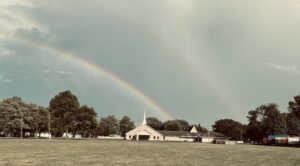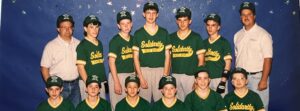
Doesn’t it make sense God would become of one us? Just think, he spent billions of years crafting the human mind and body along with a trillion stars. Creating us with five fingers, five toes, and five senses all pointing to the day of Pentecost and the pouring out of his Spirit. Of course the God of All Things would enter into his creation. How could he resist?
Unchain the faithful sleeping. He was three days in the depths. Then infused with light, for God is light, our King the Christ was risen. On the festival of First Fruits, the First Fruits of the next world even the world to come. He was risen with glorified flesh, torn and battered flesh, nail pierced wrists and feet. Oh come, gaze upon the High Priest of Reality and offer your sacrifice of praise.
Don’t you know the world was Christened from the beginning? That Christ is incarnate in creation. For the world was made through him and Spirit and matter are one. Matter merely consciousness as consciousness is the Spirit of Christ. Man is not God; but the Spirit of God is in man and in all the universe. Don’t you see the Christ is in all things? Isn’t the resurrection the pattern of our lives?
Let the darkness succumb to the light. Let it succumb to the light of divine love. There is no greater love than to die for the good of your friends, and in the end there will be only love. Hope will be realized and faith made evident. Do we know Him this day? Do we claim Him this day? For this is the King of Kings, and on the last day, we will kneel and confess, “Jesus is Lord.”
Furthermore, it is made clear in our holy books that this world is merely a diversion. That this reality is only a test to see who will seek, love, and live to please the creator. The real reality is the reality to come. If you don’t believe me, read the Koran or the New Testament Epistles. Was Mohammad not a prophet of the Lord; was Paul a raving madman? Isn’t it clear? What else could this be about?
Choose you this day whom you will serve; as for me and my house, we shall serve the Lord.
written by Brett Wiley








